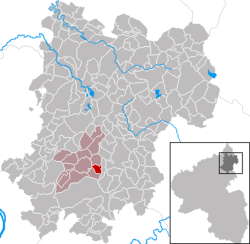뿌리 없는 세계관
Rootless cosmopolitan| 시리즈의 일부 |
| 반유대주의 |
|---|
 |
| |
뿌리 없는 코스모폴리탄(러시아어: езрро roman roman roman roman roman roman roman roman roman, 로마자:[1] besrodnyi kosmopolit)은 주로 유대 지식인들이 1948-1953년 반유대주의 캠페인 동안 소련에 대한 완전한 충성심을 결여한 것에 대한 비난으로 언급되었던 소련의 경멸적인 표현이었다.이 캠페인은 1946년 조지프 스탈린이 "부르주아 서구의 영향"과 연관된 작가들을 공격한 것에서 비롯되었고,[2][3][4] 1953년 존재하지 않는 닥터스 플롯의 "폭로"로 절정에 달했다.
기원.
이 표현은 19세기 러시아 문학평론가 비사리온 벨린스키가 러시아 국민성이 [5]결여된 작가들을 묘사하기 위해 만든 것이다.
스탈린 밑에서 사용
언론인 마샤 게센에 따르면, 뿌리 없는 세계인의 간결한 정의는 1949년 Voprosy istorii (역사의 문제)에 실렸다: "근본 없는 세계인은 사회주의 사회의 건설과 적들에 대한 러시아 국민들의 세계적인 역사적 역할을 왜곡하고 잘못 표현한다.게센은 "러시아"라는 용어는 러시아 민족만을 의미하는 배타적 용어이며, 그래서 그들은 "영웅적인 민족 러시아인들을 찬양하는 것을 게을리 한 역사학자는 [6]반역자일 가능성이 있다"고 결론짓는다.Cathy S. Gelbin에 따르면:
1946년부터 안드레이 즈다노프가 소련의 문화정책 책임자가 되었을 때, 소련의 미사여구는 서양의 퇴보로부터 해방된 순수한 소련 문화의 목표를 점점 더 강조하였다.예를 들어, 이것은 1947년 소련 주간지 Literaturnaya Gazeta에 실린 글에서 명백해졌는데, 이 기사는 뿌리 없는 국제주의의 주장된 표현이 소련 문화에 해롭지 않다고 비난했다.1949년부터, 그리고 나서, 유대인들이 국제적인 시온주의 세계주의 [7]음모를 숨긴 혐의로 명백하게 기소되었을 때, 소련과 그 위성 국가들에서 공개적으로 일련의 반유대주의 숙청과 처형이 시작되었다.
마르가리타 레반토프스카야에 따르면:
1940년대와 1950년대의 국제주의에 반대하는 캠페인은 뿌리 없는 국제인을 애국심이 결여된 시민으로 정의하고 연극 비평가, 이디시어를 사용하는 시인, 의사 등 소련 내에서 외국의 영향력을 전파했다.그들은 미학, 친미적 태도, 시오니즘, 또는 제2차 세계대전 동안 유대교와 유대교의 파괴에 대한 부적절한 수준의 우려에 대한 서유럽 철학을 전파했다는 비난을 받았다."근본 없는 세계인"이라는 말은 유대인에게 적용되었을 때 "정체성이 없는 사람"과 "여권 없는 방랑자"와 동의어였고, 따라서 이방인이나 [8]외부인으로서의 그들의 지위를 강조했다.
포스트 스탈린
그 용어는 아직도 반유대성 트로페로 [9][10][11][12]널리 알려져 있다.
「 」를 참조해 주세요.
레퍼런스
- ^ Figes, Orlando (2007). The Whisperers: Private Life in Stalin's Russia. New York City: Metropolitan Books. p. 494. ISBN 978-0-8050-7461-1.
- ^ Azadovskii, K.; Egorov, B. (2002). "From Anti-Westernism to Anti-Semitism". Journal of Cold War Studies. 4 (1): 66–80. doi:10.1162/152039702753344834. S2CID 57565840.
- ^ Greenfield, Jeff (3 August 2017). "The Ugly History of Stephen Miller's 'Cosmopolitan' Epithet: Surprise, surprise—the insult has its roots in Soviet anti-Semitism". Politico.
- ^ "Stalin on Art and Culture". International Association of Friends of the Soviet Union. Retrieved 5 December 2021.
In 1946 Stalin met with Soviet intellectuals to discuss and analyze the trends developing in Soviet art, music, literature and theatre – after the Second World War. Here we give a shortened version of his replies to questions posed by the intellectuals. '[...] Frequently in the pages of Soviet literary journals works are found where Soviet people, builders of communism are shown in pathetic and ludicrous forms. The positive Soviet hero is derided and inferior before all things foreign and cosmopolitism that we all fought against from the time of Lenin, characteristic of the political leftovers, is many times applauded. In the theater it seems that Soviet plays are pushed aside by plays from foreign bourgeois authors. The same thing is starting to happen in Soviet films.'
- ^ Figes, Orlando (2007). The Whisperers: Private Life in Stalin's Russia. p. 494. ISBN 978-0805074611.
- ^ Gessen, Masha (2005). Two Babushkas. London, UK: Bloomsbury. p. 205. ISBN 978-0-7475-7080-6.
- ^ Gelbin, Cathy S. (2016). "Rootless Cosmopolitans: German-Jewish writers confront the Stalinist and National Socialist atrocities". European Review of History/Revue européenne d'histoire. 23 (5–6): 863–879. doi:10.1080/13507486.2016.1203882. S2CID 159505532. 페이지 865에 기재되어 있습니다.
- ^ Levantovskaya, Margarita (2013). Rootless Cosmopolitans: Literature of the Soviet-Jewish Diaspora (PDF) (PhD). UC San Diego. p. 1.
- ^ Gwynne, Andrew (16 April 2014). "Anti-Semitism". Parliamentary Debates (Hansard). Parliament of the United Kingdom: House of Commons. col. 255.
- ^ Steinberg, Rachel (9 April 2019). "Fire Brigades Union tells official to dial back social media use after controversial tweet". The Jewish Chronicle.
Many were quick to criticise Mr Embery’s use of "rootless, cosmopolitan", including Jewish MP Alex Sobel who tweeted: "Literally an anti-semitic trope used by Stalin the culmination of which saw many good bundists imprisoned by East European Communist regimes (including my grandfather)…stop othering Jews".
- ^ Glasman, Maurice (22 May 2019). "No direction home: the tragedy of the Jewish left". New Statesman.
I knew that the phrase "rootless cosmopolitan" was minted by Stalin and his executioners in the show trials to exterminate Jews, particularly Trotskyists, for whom this became the standard expression. I cannot hear it without the dread fear of the knock on the door by the Cheka in the early hours.
- ^ Brook, Vincent (2006). You Should See Yourself: Jewish Identity in Postmodern American Culture. New Brunswick, NJ: Rutgers University Press. p. 166. ISBN 0813538440.
This outlook can be viewed positively as a condition that enhances Jews' and adaptability and empathy for others, or it can have a negative connotation, as in the recurring trope of the rootless cosmopolitan
추가 정보
- Hoberman, J. (18 March 2019). "The Rootless Cosmopolitan Who Mocked Totalitarian Consciousness". Tablet. Retrieved 19 March 2020.
- Miller, Michael L.; Ury, Scott (2010). "Cosmopolitanism: the end of Jewishness?". European Review of History. 17 (3): 337–359. doi:10.1080/13507486.2010.481923. S2CID 144567082.
- Miller, Michael L.; Ury, Scott, eds. (2014). Cosmopolitanism, Nationalism and the Jews of East Central Europe. London: Routledge. ISBN 978-1-13801-852-5.
- Pinkus, Benjamin (1984). The Soviet Government and the Jews 1948-1967: A Documented Study. Cambridge: Cambridge University Press. pp. 147–192. ISBN 978-0-52124-713-9.
- Spector, Hannah (10 March 2016). "The cosmopolitan subject and the question of cultural identity: The case of 'Crime and Punishment'". Crime, Media, Culture. 13 (1): 21–40. doi:10.1177/1741659016634813. S2CID 146984216.


